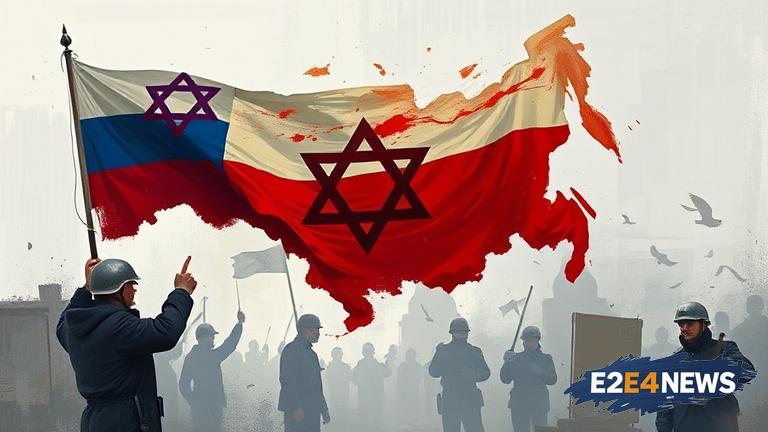In recent years, Russia has witnessed a significant surge in anti-Semitic incidents, ranging from vandalism and hate speech to physical attacks on Jewish individuals and institutions. This trend has sparked widespread concern among Jewish communities, human rights groups, and international organizations. The Russian government has been criticized for its inadequate response to these incidents, with many arguing that it has failed to take sufficient measures to prevent and prosecute anti-Semitic crimes. The rise of anti-Semitism in Russia is often attributed to the growing nationalist and extremist movements in the country, which frequently target minority groups, including Jews. The Russian Orthodox Church has also been accused of promoting anti-Semitic views and rhetoric, further fueling the problem. Despite these challenges, many Jewish organizations and communities in Russia continue to work tirelessly to promote tolerance, understanding, and education. They have launched various initiatives, including cultural events, educational programs, and advocacy campaigns, aimed at combating anti-Semitism and promoting interfaith dialogue. However, these efforts are often hindered by the lack of support from the Russian authorities, which has led to a sense of frustration and disillusionment among Jewish communities. The international community has also been criticized for its failure to adequately address the issue of anti-Semitism in Russia, with many arguing that it has not done enough to pressure the Russian government to take action. The United States, in particular, has been accused of being too soft on Russia, despite its own laws and regulations aimed at combating anti-Semitism. The European Union has also been criticized for its inadequate response, with many arguing that it has failed to take sufficient measures to address the issue. In recent years, there have been several high-profile incidents of anti-Semitism in Russia, including the vandalism of Jewish cemeteries and synagogues, as well as physical attacks on Jewish individuals. These incidents have sparked widespread outrage and condemnation, both within Russia and internationally. Despite these challenges, many Jewish communities in Russia remain resilient and determined to continue their work promoting tolerance and understanding. They have also received support from various international organizations, including the United Nations, which has condemned anti-Semitism in all its forms. The Russian government has also faced criticism for its treatment of Jewish minorities, particularly in the North Caucasus region, where many Jewish communities have faced persecution and discrimination. The rise of anti-Semitism in Russia has also been linked to the country’s growing isolationism and nationalism, which has led to a decrease in tolerance and understanding for minority groups. In conclusion, the rise of anti-Semitism in Russia is a growing concern that requires immediate attention and action from the international community. It is essential that the Russian government takes sufficient measures to prevent and prosecute anti-Semitic crimes, and that the international community provides adequate support and pressure to ensure that this happens. The Jewish communities in Russia deserve to live in safety and dignity, free from the threat of anti-Semitism and persecution. Furthermore, it is crucial that the Russian government acknowledges the gravity of the situation and takes concrete steps to address it. This includes increasing funding for programs aimed at promoting tolerance and understanding, as well as providing support for Jewish communities and organizations. Additionally, the international community must continue to monitor the situation closely and provide pressure on the Russian government to take action. The rise of anti-Semitism in Russia is not only a concern for Jewish communities, but also for the broader international community, as it has implications for global stability and security. It is essential that we work together to combat anti-Semitism and promote tolerance, understanding, and respect for all minority groups. The consequences of inaction will be severe, and it is our collective responsibility to ensure that we do not stand idly by while anti-Semitism continues to rise in Russia. Ultimately, the fight against anti-Semitism requires a collective effort, and it is our hope that the international community will come together to support Jewish communities in Russia and around the world.
